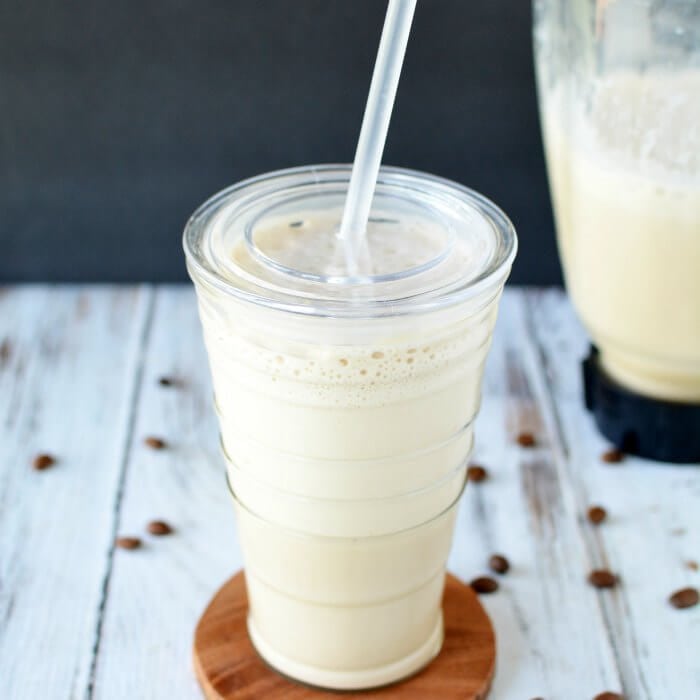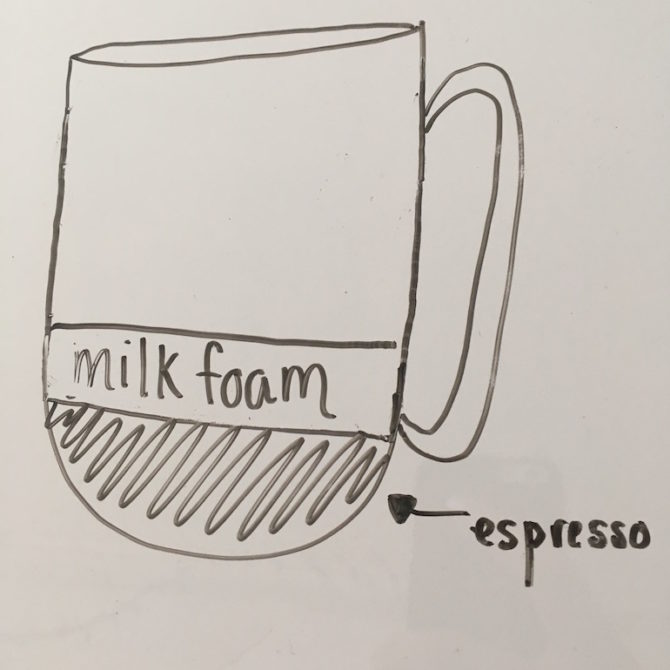How Much Caffeine Is In Decaf Coffee

Decaf Coffee has Caffeine.
Decaf is caffeine-free, but we still have questions.
We all love and know caffeine. It is a central nervous system stimulant found in coffee beans that gives cold brews and pour-overs their energy-boosting power. Decaffeinated coffee, even those who are seasoned in coffee drinking, does not have 100% caffeine. It's true, people: Your decaffeinated coffee contains caffeine. GASP. You need to understand why this is and how much you should be drinking.

How much caffeine is actually in decaf
According to the U.S. National Library of Medicine, an eight-ounce cup of regular coffee contains between 95 and 200 mgs of caffeine. According to FDA, decaf coffee is typically between two and fifteen milligrams for every 8-ounce glass. As with regular coffee , there's clearly a lot of variability here. Ristenpart stated that the amount of caffeine in the coffee by the time it reaches the customer depends on the type and origin of the beans. However, it all depends on the type and intensity of the decaffeination method a manufacturer uses as well as the brewing technique and strength.
Watch a Neurologist explain how to manage your migraines in a 2006 study in Journal of Analytical Toxicology. Researchers measured caffeine levels in 22 cups of espresso and decaf coffee from various brands including Starbucks. They found that the caffeine content ranged from none detectable to 13.9 milligrams per 16-ounce cup of decaf coffee (or about seven milligrams per eight-ounce cup), and three to 15.8 milligrams per shot of (decaffeinated) Starbucks espresso.
Arnold states that there are no rules limiting the amount of caffeine coffee may contain to qualify for decaf labeling. However, "as a general rule, the FDA has not objected to the use of the term 'decaffeinated' on coffee if at least 97 percent of the original caffeine has been removed," Arnold explains. The FDA considers that…is the best baseline. Arnold says that although the FDA may not have regulations specific to decaf cases, it "mostly looks at labels that truthful and are not misleading" but that this does not mean that the FDA is holding manufacturers or coffee shops to their promises. And to be fair, the FDA has more pressing concerns when it comes to what's lurking in the food and drugs

The Deal That Little Caffeine Is
A few milligrams is likely to not be enough for most people. This is according to Ajay Sampat, neurologist, sleep medicine specialist, and assistant clinical professor at UC Davis Health. A small amount of caffeine is unlikely to cause noticeable side effects for most people. Decaf is unlikely to cause side effects in people who are sensitive or use caffeine frequently. And that is the majority of us.
However, this doesn't necessarily mean that decaf caffeine is not an issue for everyone. Dr. Sampat warns that decaf can have a significant effect on the caffeine tolerance of those who really are sensitive. Certain people have a high tolerance to caffeine. It's possible that they are also very sensitive to caffeine. According to the U.S. National Library of Medicine, caffeine-sensitive people may experience side effects like a faster heart rate, feeling restless or nausea after drinking regular or decaf coffee. That's why the FDA advises that "if you react strongly to caffeine in a negative way, you may want to avoid [decaffeinated coffee] beverages altogether." The tiny amount of caffeine in decaf could also be a potential issue for anyone trying to avoid or minimize caffeine intake due to a medical condition. This could include those with insomnia, liver disease, or migraines. Dr. Sampat states that caffeine can trigger sleep problems. And although caffeine can also potentially interfere or interact with various types of medications, Dr. Sampat says, it's worth noting that these interactions have typically been observed with standard doses of caffeine, not the much smaller quantities found in decaf. You should talk to your doctor if you have concerns regarding how caffeine can affect your health.
Decaf's effect on sleep can be affected by the way you consume it. Although caffeine's metabolism rate and duration of effects may vary from person one to another, Dr. Sampat said that the average caffeine peak is within the hour. It can also linger for up to six hours in the body, according the U.S. National Library of Medicine. Decaf will help you sleep well 12 hours later, even if your caffeine tolerance is high. However, many people order decaf after eating, assuming that their coffee will not contain caffeine. This could lead to problems at bedtime. Although the caffeine level may not be sufficient to cause any adverse effects, it is possible for the individual to still enjoy the cup. Decaf may contain a tiny amount of caffeine, which can be beneficial in certain situations. Consider if you're looking to either cut back on caffeine, get off it completely or avoid getting a migraine in the afternoon. The decaf may be enough for you to make it through the day, even if the caffeine content is minimal. However, your tolerance to caffeine and sensitivity will affect how much caffeine you can take.
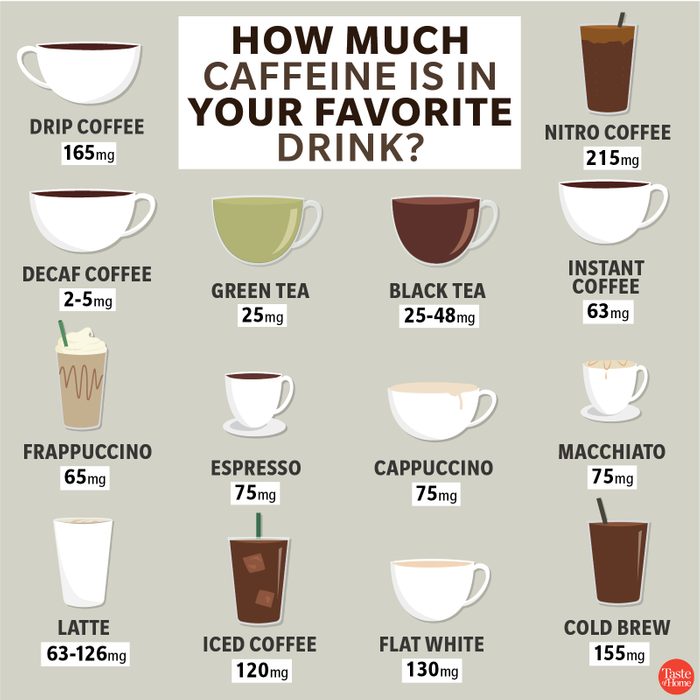
Decaf Coffee Isn'T Caffeine-Free
Research shows that drinking decaf doesn't eliminate caffeine Jennifer Warner from the web. MD Archives Oct. 11,2006 — Decaf coffee is not going away.
A new study has shown that decaffeinated teas contain only a trace amount of caffeine. Bruce A. Goldberger Ph.D. says, "If one drinks five to ten cups of decaffeinated java, the dosage of caffeine could easily exceed the level found in a cup or so of caffeinated joe." According to a University of Florida news release.
According to researchers, caffeine is the most commonly consumed drug worldwide. Coffee is an important source. However, it is not clear how much caffeine should be consumed. Some people may experience adverse effects even if they consume low amounts.
Caffeine intake should be limited for people with heart disease, high blood pressure, and other medical conditions.
In an effort to abstain from caffeine, many people turn to decaffeinated coffee, but researchers say they may be unaware that these decaf beverages also contain caffeine.

There'S Caffeine In My Decaf!
In the study, published in the Journal of Analytical Toxicology, researchers set out to find out how much caffeine is likely to be found in popular decaffeinated coffees.
Researchers purchased 10 decaffeinated 16-ounce cups of coffee at coffee shops and restaurants, and tested them for caffeine.
They found all but one — decaffeinated Folgers Instant, purchased at a Krystal fast-food restaurant — contained caffeine. The caffeine content ranged from 8.6 milligrams to 13.9 milligrams.
The caffeine content in an 8-ounce cup (8-ounce) of regular coffee drip-brewed with 85mgs of caffeine is only one-tenth.
Next, researchers tested several samples of decaffeinated espresso shots and decaf brewed coffee from the same Starbucks location to determine if caffeine content varied in the same drinks from the same location.
Our results indicated that there was a large variation in the caffeine content between espresso shots with decaffeinated caffeine — nearly 3 to 16mgs and decaf coffee brewed at 12.4 milligrams each 16-ounce portion.
Scientists believe that people can become dependent on decaffeinated espressos, even though they have low caffeine levels.

The Insider's Summary
We asked two experts about decaf coffee's caffeine levels.
The answer was "yes."
You may be sensitive to caffeine and want to avoid decaf.
If you think drinking decaf coffee shields you from the effects of caffeine , you're wrong.
Decaffeinated coffee does not need to have 100% caffeine. However, USDA regulations say that the minimum caffeine content for decaffeinated coffee should be at least 97%.
Although 3% is a relatively small amount of caffeine, it's still enough to affect people who are sensitive to caffeine.
But how big of an impact can that 3% really make? To get answers to all your decaf coffee questions, we reached out to Paul Toscano – chief marketing officer for Joyride Coffee and Shay Zohar – Director of Sales and Marketing at Barrie House.
Certain decaf mixes contain higher levels of caffeine than others.
Toscano indicated that coffee beans can be divided into two varieties: Arabica (sweeter) and Robusta (bitter), which contain almost double the amount of caffeine found in Arabica beans.
The delicate Arabica beans are used in higher-end cafés. The Robusta bean, however, is used to make "commodity" coffee. It is more affordable, has a higher caffeine content, and it's easier to grow. Robusta beans are more caffeine-rich than Arabica beans after decaffeination, although this is dependent on the beans and their brand.
However, these two things don't represent the ultimate guideline for caffeine content.
The lightning bolt symbol is the icon of this emblem.
House Democrats Want to Extend the Biden Child Credit Tax Credit up to 2025
The brewing process can cut even more caffeine from the blend.
"The brew process is really the most important part of how much caffeine you are extracting," Tosacano said. "If someone is looking to have less caffeine, I would say adjust your brew process. For more caffeine, you can increase the beans or the time that it takes. You can have more caffeine by changing the way you brew your coffee. Zhoar said that cold brew is the best because it takes longer for coffee to be brewed. Coffee is more caffeine-rich if it's brewed longer.
A grande coffee from Starbucks, for example, has 310mg of caffeine whereas the decaf version has only 25mg of caffeine.
Shinya Suzuki / Flickr
How bad is it to consume a lot decaf coffee?
How can decaf coffee cause health problems? Decaffeinated coffee, or "decaf," is similar in taste and appearance to regular coffee but contains very little caffeine. Decaf coffee is safe for health.
Which Decaf Espresso Has the Least Caffeine?
Lowest Caffeine Level Decaf Process: The Swiss Water Decaf Process is certified 99.9% caffeine free and uses only water (no chemicals) to decaffeinate the beans.Oct 5, 2020
Do Decaf and Coffee Help You Stay Awake?
Decaffeinated coffee does not make you sleepy.
Is There Any Point To Drinking Decaf Coffee?
Consuming decaf coffee is also linked to a smaller but still significant decrease in premature death and death due to strokes or heart disease ( 23). Summary: Decaf coffee may lower your chances of developing type 2. This may lower the chance of death prematurely.
.How Much Caffeine Is In Decaf Coffee
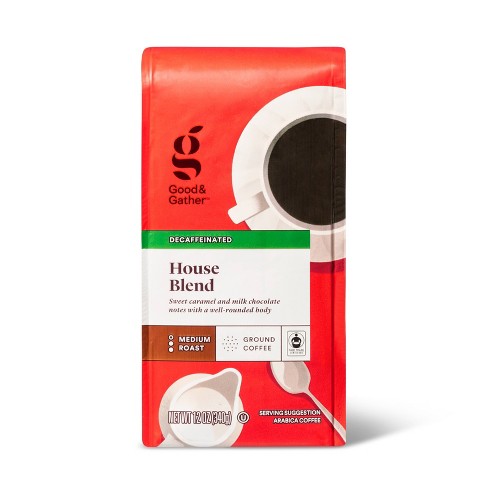
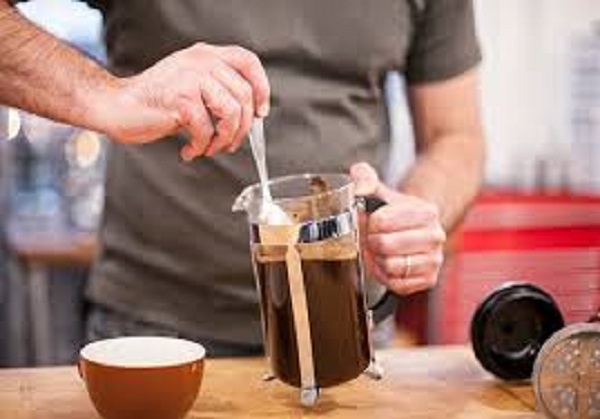
:max_bytes(150000):strip_icc()/__opt__aboutcom__coeus__resources__content_migration__serious_eats__seriouseats.com__images__2014__07__20140714-french-press-side-bdb5df539e33491d8a4b13f625256844.jpg)


